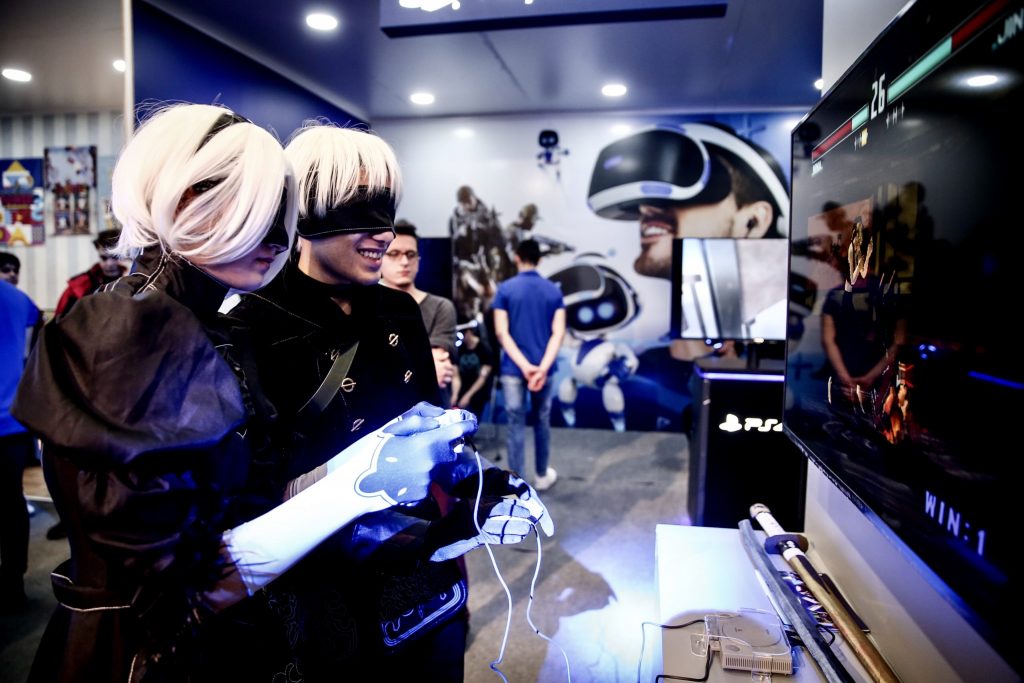On February 18, 2019, just after 9 30 p.m., the Turkish video game giant Peak broadcast a TV ad that felt more like a military recruitment video: bird droppings dapple an unsuspecting driver’s window, and when he brakes and looks ahead, he notices a rhinoceros blocking the road.
“You never know what surprises life will place in your way,” a voice says. The scene cuts to black, and over the next three minutes, a message is slowly typed out across the screen: “Wake up… We’ll change the world. But first, we should introduce ourselves. If you think we’re joking, just change the channel and see how serious we are.”
Anyone who flipped the channel would have realized that the same commercial was playing across all of the national broadcasters simultaneously. For Peak, and by extension Turkey’s gaming sector, it was a bold, and expensive, show of force.
Over the last decade, Peak and other Turkish gaming studios have transformed Istanbul into the world capital of the “casual game” (otherwise known as free-to-play games) industry. Unlike AAA games, like Halo, Assassin’s Creed, or Final Fantasy, casual games are mobile-native, easy to learn, shorter to play and target the broadest audience possible. According to 2020 statistics, around 58.86% of all mobile game players are casual gamers. It’s estimated that the global market for casual gaming is worth more than $8 billion.
In March 2021, six of the Apple App Store’s top ten mobile games in the U.S. came from Turkish studios, including Basketball Arena, which asks players to steal the ball from opponents in head-to-head matches and go for slam dunks; the self-styled “super fun running game” Bounce Big, where players run around, collect items, improve the size of their backsides, and launch off pads (the winning player twerks at the end of each level); Deep Clean Inc. 3D, in which users scrub crusty iPhones and toilets; and Jelly Dye, in which players, well, inject dye into a jelly. And Istanbul has become a magnet for up-and-coming game developers.
Many of the industry’s biggest game studios, including Crytek and Voodoo, rent offices in Istanbul. Last year, gaming giant Zynga bought Peak for $1.8 billion, in its biggest acquisition to date, making Peak Turkey’s first unicorn. “We set out to show everyone that this could be done from Istanbul,” Peak’s co-founder Buğra Koç told Rest of World. “But first, we wanted to prove it to ourselves.”
On June 30, 2021, Istanbul-based Dream Games became a unicorn just four months after releasing its first game, Royal Match. The game has 6 million users, who help generate $20 million for Dream Games each month via in-game-purchases.
For Turkish developers, it’s been a heady time: Job boards in Istanbul are awash with posts for game developers, and top talent is regularly poached. The boom coincided with Turkey’s debt crisis, and the collapse of the Turkish lira. “Developing casual games became the American dream in this economically devastating time,” says Güven Çatak, founder and director of BUG lab, which offers undergraduate and graduate degrees on game design at Istanbul’s Bahçeşehir University. For some, game development has become a ladder to the middle and upper class.
But for others, the industry represents an empty promise. There’s a dark side to any boom, and developers report scenes of gaming sweatshops run by predatory contracts and worse, with developers expected to churn out multiple games a week, with no money up front. For those who burn out, a line of recruits is ready to take their place.
“After high school, Istanbul’s young game developers are chased and headhunted by vampirish publishers who sign them up on one-year contracts, which allow them to outearn their parents,” said Çatak. “For Turkish teenagers, the appeal of a career in game development is magnetic.”
restofworld.com
